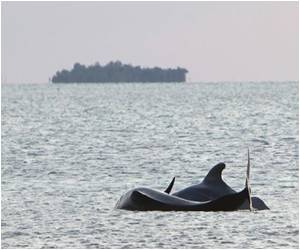
The new research means that ocean warming will impact plankton, and in turn drive a vicious cycle of climate change.
Researchers from UEA's School of Environmental Sciences and the School of Computing Sciences investigated phytoplankton - microscopic plant-like organisms that rely on photosynthesis to reproduce and grow.
Lead researcher Dr Thomas Mock, said that phytoplankton, including micro-algae, are responsible for half of the carbon dioxide that is naturally removed from the atmosphere.
He said that as well as being vital to climate control, it also creates enough oxygen for every other breath we take, and forms the base of the food chain for fisheries so it is incredibly important for food security.
Collaborators from the University of Exeter, co-authors of this study, developed computer generated models to create a global ecosystem model that took into account world ocean temperatures, 1.5 million plankton DNA sequences taken from samples, and biochemical data.
Advertisement
The study has been published in the journal Nature Climate Change.
Advertisement










